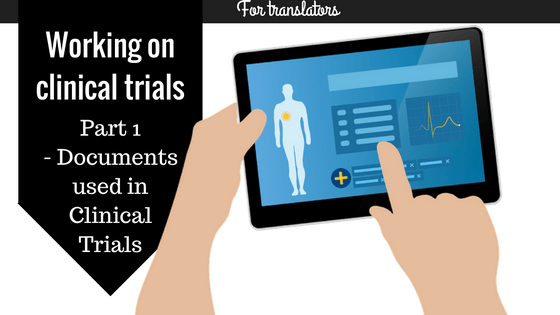
According to Good Clinical Practice (GCP), all information and processes of clinical trials must be recorded and stored so that they can be correctly reported, interpreted and authenticated. Many different types of documents are created, processed and filed in the process of clinical studies.
As per ICH GCP E6 Section 8, essential documents are those which:
(…) individually and collectively permit evaluation of the conduct of a trial and the quality of the data produced. These documents serve to demonstrate the compliance of the investigator, sponsor and monitor with the standards of Good Clinical Practice and with all applicable regulatory requirements.
Other important uses and objectives of essential documents are:
- correct management of the trial in question by investigators, sponsors and monitors;
- audits;
- inspections by regulatory authorities.
There are mainly three stages in which essential documents are generated and handled, namely:
- Before the start of the clinical phase of the trial
- During the clinical phase of the trial
- After the clinical phase of the trial
All documentation needs to be described and it must be defined whether they are stored in the files of either the study site (investigator or institution), the sponsor, or both. See the European Commission’s Detailed Guidance on the Content of a Trial Master File and Archiving for more information on Trial Master Files. In some cases, documents may be combined if all essential parts are still clear and can be easily identified.
Very few clinical trials are conducted only in one country; many are available in a variety of different sites in different places, so the translation and linguistic adaptation for different target cultures and languages becomes more important. However, requirements as to which types of documents need to be translated differ from country to country. Whereas in some states all documents need to be available in the local language, others assume that specialist-facing text will be understood in English, and only texts that are not directly addressing the study staff involved in the trial need to be translated, such as:
- Packaging and labeling
- Patient diaries
- Patient information sheets
- Informed consent forms
- Patient questionnaires
- Patient-reported outcomes
General essential documents in the three different stages are as follows:
Before the start of the clinical phase of the trial
Authorization/approval/notifications by regulatory authorities (if applicable)
Certificate of Analysis of Investigational Products shipped
Composition of Institutional Review Board (IRB) and Independent Ethics Committee (IEC)
Curriculum Vitae and other relevant information/documents regarding the qualification of the investigators involved in the trial
Decoding procedures for blinded trials
Documentation from IRB (only applicable in the US) and/or IEC providing approval/favorable opinion on:
- Protocol and its amendments (if applicable)
- Case Report Form (CRF) (if applicable)
- ICF(s)
- Other written information for subjects
- Advertisement for subject recruitment (if applicable)
- Subject compensation (if applicable)
- Any other documents that require approval/a favorable opinion
Financial aspects of the trial
Information given to trial subjects, such as:
- Informed Consent Form (ICF). All applicable translations also have to be filed
- Other written information
- Marketing material for subject recruitment (if applicable)
Insurance statement
Instructions for handling of investigational product and trial-related materials
Investigator’s brochure
Master randomization list
Medical/laboratory/technical procedures and/or tests:
- Certification, or
- Accreditation, or
- Established quality control and/or external quality assessment, or
- Other validation (if applicable)
Normal values for medical/laboratory/technical procedures and/or tests included in the protocol
Pre-trial monitoring report
Sample of labels for investigational product containers
Shipping records for investigational products and trial-related materials
Signed agreement between involved parties, such as:
- Investigator/institution and sponsor
- Investigator/institution and Contract Research Organization (CRO)
- Sponsor and CRO
- Investigator/institution and authorities.
Signed protocol and amendments (if applicable); sample CRF
Trial initiation monitoring report
During the clinical phase of the trial
Any revisions to:
- Protocol/amendments and CRF
- Informed consent form
- Other written information provided to subjects
- Advertisement for subject recruitment
Certificate of analysis for new batches of investigational products
Curriculum Vitae for new investigators
Dated and documented approval/favorable opinion of IRB/IEC of the following:
- Protocol amendments
- Revisions of:
- Informed consent form
- Other written information to be provided to the subject
- Advertisement for subject recruitment
- Any other documents given approval/favorable opinion
- Continuing review of trial (if applicable)
Documentation of CRF corrections
Documentation of investigational products and trial-related materials shipment
Interim or annual reports to IRB/IEC and authority or authorities
Investigational products accountability at the site
Investigator’s brochure updates
Monitoring visit reports
Notification by originating investigator to sponsor of serious adverse events and related reports
Notification by sponsor and/or investigator (where applicable) to the regulatory authority or authorities and IRB/IEC of unexpected serious adverse drug reactions as well as other safety information
Notification by sponsor to investigators of safety information
Record of retained body fluids/tissue samples (if applicable)
Regulatory authorities authorizations/approvals/notifications where required for protocol amendments and other documents
Relevant communications other than site visits
- Letters
- Meeting notes
- Notes of telephone calls
Signature sheet
Signed informed consent forms
Signed, dated and completed CRFs
Source documents
Subject enrolment log
Subject identification code list
Subject screening log
Updates regarding medical/laboratory/technical procedures/tests in the protocol
Updates of medical/laboratory/technical procedures/tests:
- Certification, or
- Accreditation, or
- Established quality control and/or external quality assessment, or
- Other validation (where required)
After the clinical phase of the trial
Audit certificate (if applicable)
Clinical study report
Completed subject identification code list
Documentation of investigational product destruction
Final report by investigator to IRB/IEC where required, and to the regulatory authority or authorities (if applicable)
Final trial close-out monitoring report
Investigational product accountability at site
Treatment allocation and decoding documentation
Reference:
http://ichgcp.net/8-essential-documents-for-the-conduct-of-a-clinical-trial
http://www.IRB.umn.edu/download/2-13-2007.pdf
http://www.ct-toolkit.ac.uk/routemap/trial-documentation
http://ec.europa.eu/health/files/eudralex/vol-10/v10_chap5_en.pdf
http://www.crash2.lshtm.ac.uk/ICHGCP/8Documents.htm
http://www.fda.gov/RegulatoryInformation/Guidances/ucm122046.htm
http://www.medtran.ru/eng/trials/trialdocumentation.htm
https://clinicaltrials.georgetown.edu/common-regulatory-documents




